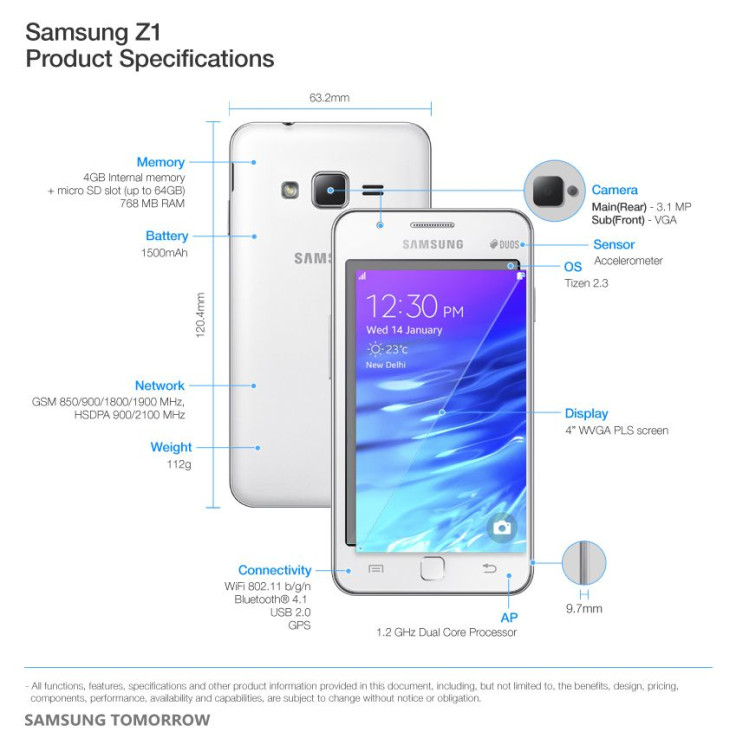Samsung Z1, First Tizen Smartphone, Launched In India For $92

Samsung has launched the new Z1 smartphone, the company’s first handset to be powered by its Tizen mobile operating system, in India as part of a broader plan to reduce its dependency on Google’s Android.
The latest Z1 smartphone went on sale in India on Wednesday with a price tag of 5,700 rupees ($92). The device, which is one of Samsung's cheapest, comes with a plastic body and a simplified user interface. Many believe that releasing a phone based on its own mobile OS is a major step by Samsung to compete with Android, which powers its flagship Galaxy devices and many other smartphones currently available in the market.
“Built on the lightweight Tizen platform, the Samsung Z1 delivers a faster boot time and quick access to apps, along with enhanced web performance to offer users faster page loading times with decreased data usage,” Samsung said on its official blog. “The Samsung Z1 is equipped with long-lasting battery performance and also features ‘Ultra Power Saving Mode’ to ensure users can always stay connected, even at the minimal battery levels.”

The Z1 features a 4-inch WVGA (800×480) PLS TFT display, a 3.1-megapixel rear camera, a VGA front-facing camera, dual SIM slots, Wi-Fi support, Bluetooth, GPS and 3G connectivity. The smartphone, which is powered by a 1.2GHz dual-core processor and 768MB RAM, also sports a 1,500mAh battery and 4GB of internal storage, which is expandable up to 64GB using microSD cards.
With a price point below $100, the Z1 is expected to help Samsung compete with local Indian smartphone manufacturers like Micromax Informatics, as well as low-cost Chinese brands like Xiaomi and Huawei, while also convincing first-time buyers to pick its Tizen operating system, according to Reuters.
“Samsung has better chances of success with first-time smartphone users, who may have limited exposure to the huge ecosystem offerings from Android or iOS,” Reuters quoted IDC analyst Kiranjeet Kaur as saying.
© Copyright IBTimes 2024. All rights reserved.






















